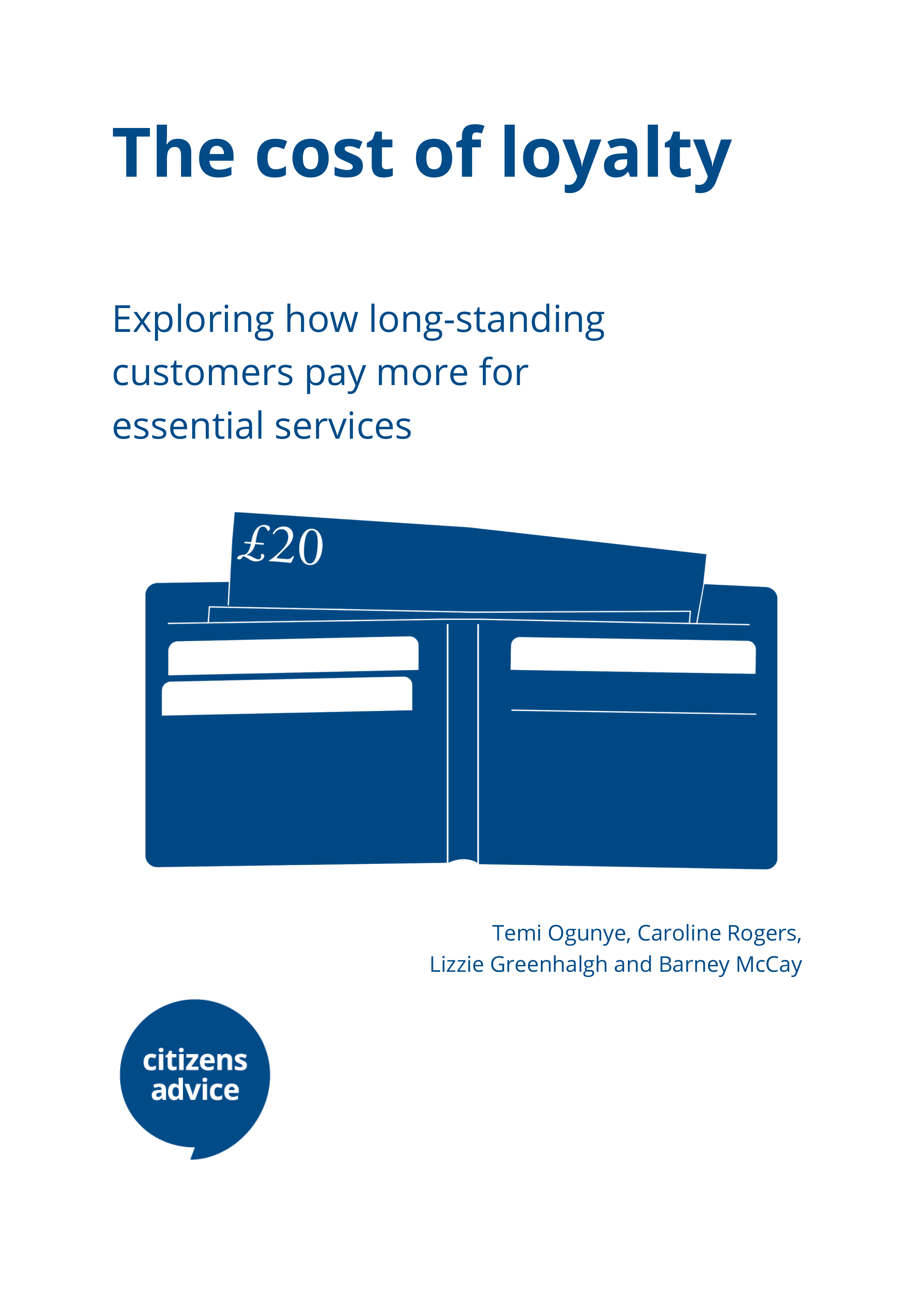The cost of loyalty: exploring how long-standing customers pay more for essential services
Loyalty is often seen as something to be encouraged, even rewarded. When a customer is loyal to a supermarket or coffee shop, for example, they often receive discounts or special offers from the business in return.
But when it comes to essential service markets - such as energy, mobile, broadband and financial services - things are different. Instead of being rewarded, long-standing customers often pay more. While this cost has been acknowledged in the energy market, it has not been widely recognised in other markets such as broadband.

This research 1.08 MB shows how people face a ‘loyalty penalty’ across essential markets and could be overpaying by as much as £987 - more than 4 months’ worth of food for the average household. And it’s often vulnerable consumers who pay the most.
The loyalty penalty is not only unfair, it is bad for the economy too. This research finds that essential service providers undermine consumer choice, using processes which take advantage of people’s behavioural biases. This suggests that, even in ostensibly competitive markets, firms may lack strong enough incentives to develop innovative new products and improve customer service. Both consumers and the wider economy lose out.
Choice is hindered at three key stages of the consumer journey, leaving many on poor value deals:
Choosing a good deal: finding the best value contract is often difficult and many people don’t spot the loyalty penalty. Two in five (39%) consumers are unaware of the loyalty penalty in essential markets and over a third (35%) say it’s too hard to shop around. Providers hide the loyalty penalty deep in terms and conditions where few people will find it.
Choosing to stick with the same deal: prompts to inform people when their fixed deal is expiring are often ineffective. Three quarters (75%) of broadband customers are not aware of ever being informed by their provider that they could save money by moving to a cheaper deal. And in the mortgage market, providers rely on post to communicate with customers rather than allowing people to choose their preferred method of communication.
Choosing to exit a contract: barriers deter people from switching. A quarter (25%) of people think it’s difficult to exit an essential service contract. And many who choose to stay mistakenly think they are on the best deal available.
Recommendations
Regulators and government should seize opportunities to address the loyalty penalty. They should adopt measures that promote choice, increase competition, and protect vulnerable consumers across essential markets:
Regulators should introduce targets for providers to reduce the loyalty penalty. They should monitor how many people are affected, how badly they are affected, and set targets to reduce the penalty’s impact.
The Competition and Markets Authority (CMA) should investigate possible solutions to the loyalty penalty for vulnerable consumers. Ofgem is already consulting on a price cap for vulnerable consumers. The CMA should consider how the penalty can be tackled more systematically - e.g. whether safeguard tariffs should be applied by other regulators.
Regulators and the Advertising Standards Authority (ASA) should improve framing of information across markets. For example, in the mortgage market, the ‘standard variable rate’ label should be changed to the ‘expired rate’ to better describe the nature of the contract.
Providers should be required to send much more effective, timely nudges. The Financial Conduct Authority (FCA) has recently introduced new rules in the insurance market and other regulators should follow suit. Consumers should also be able to choose how their provider alerts them when their initial deal ends.
Providers and regulators should remove barriers to exiting a contract, making switching more straightforward and hassle-free. For instance, suppliers should commit to ensuring the same method used to enter a contract is available to customers who want to exit.
Regulators should encourage the use of data and digital tools which help consumers to get a better deal. New technology can play a big role in addressing the loyalty penalty. Government and regulators should focus on how new tools can be supported to scale up and meet the needs of vulnerable consumers.
The public’s faith that markets can deliver has been shaken. The government has opportunities in its Industrial Strategy and Consumer Green Paper to set out a positive vision for how they can work better for everyone.
Regulators and government have already shown a willingness to act. Just as they have committed to intervening in the energy market, they should be willing to take practical action in other markets where too many consumers are getting a bad deal and those least able to pay are often charged more.